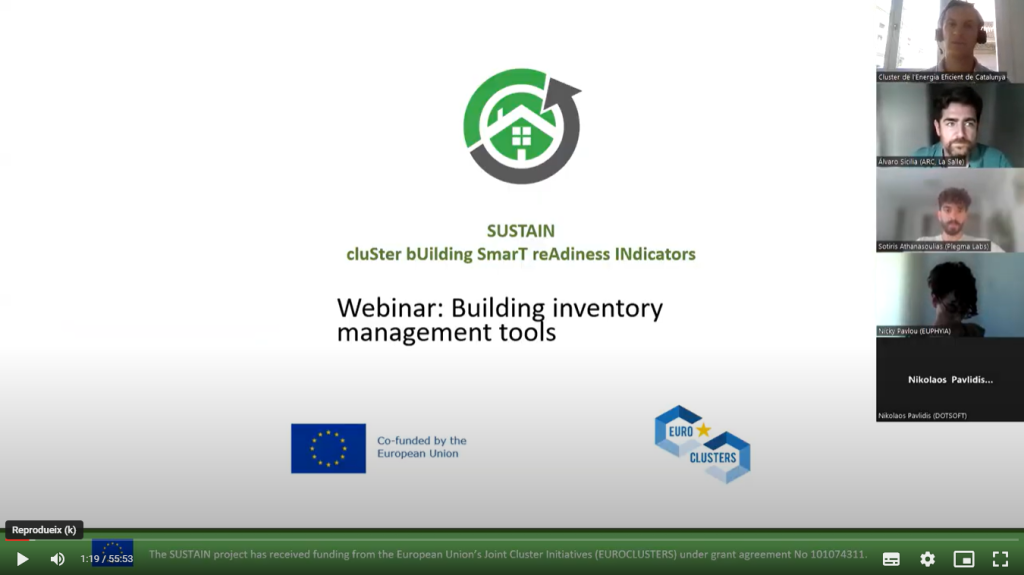SUSTAIN organises a webinar to deep in Building Inventory Management Tools

On July 10th, in the framework of the SUSTAIN PROJECT, a webinar titled “Building Inventory Management Tools” was held. This event featured participation from prominent experts in the field of building inventory management and AI-enabled solutions for energy monitoring and saving.
The first part of the webinar was presented by Francesco Valezano, who provided a comprehensive introduction to the SUSTAIN project. This initiative focuses on urban sustainability and energy efficiency in Smart buildings, aiming to implement innovative solutions for building management. Aiming to address the pressing needs for sustainable construction development, the project promotes practices that reduce construction environmental impact and improve the quality of life in buildings.
Professor Álvaro Sicilia, Head of the Architecture Representation Computing research line of the Human Environment Research group at La Salle Higher Technical School of Architecture, Ramon Llull University, led the second part of the webinar. His 30-minute technical presentation covered the following topics:
- Overview of Building Inventory Management Tools: An introduction to Open Sant Cugat and the RETABIT projects, highlighting their roles in urban building analysis and renovation planning. These tools aim to provide municipalities and urban planners with the data needed to make informed decisions about building renovations and urban development.
- RETABIT Platform: Presentation of RETABIT as a data-driven, multidimensional analysis tool for comprehensive assessment of building stock. The platform integrates various data sources to offer a detailed picture of the current state of buildings, identifying areas for improvement in energy efficiency and structural integrity.
- Application and Examples: Practical use of these tools in urban planning, with examples and insights. Professor Sicilia demonstrated how these tools have been applied in real-world scenarios, showcasing their effectiveness in optimizing urban renewal projects.
The final part of the webinar was presented by Sotirios Athanasoulias from Plegma Labs, a Greek SME active in innovation. Plegma Labs specializes in developing advanced solutions for energy management and sustainability. The presentation covered:
- About Plegma Labs: Main activities and the Plegma Labs Living Lab. Plegma Labs focuses on creating a collaborative environment where innovative energy solutions can be tested and refined.
- Introduction to AI-Enabled Solutions for Energy Monitoring and Saving:
- Demand Forecasting: Utilizing AI to predict future energy needs, enabling better planning and resource allocation.
- Non-Intrusive Load Monitoring: Techniques to monitor energy consumption patterns without the need for intrusive hardware installations.
- Scheduling: AI-driven methods to optimize energy usage schedules, reducing waste and improving efficiency.
The webinar provided valuable insights into the latest tools and technologies for building inventory management and energy efficiency. It fostered collaboration and knowledge exchange among professionals in the field, emphasizing the importance of integrating advanced technologies into urban planning and energy management practices. The discussions highlighted the critical role of data-driven decision-making and AI in achieving sustainable urban development.
You may retrieve the video of the session HERE!
